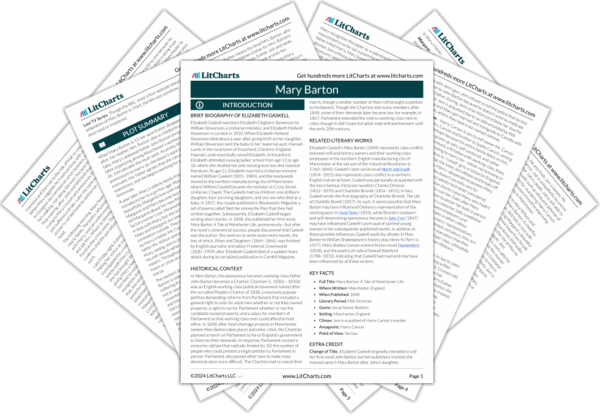An “Owenite” is a follower of Robert Owen (1771-1858), a Welsh philanthropist and labor reformer who founded a short-lived utopian-socialist intentional community. When Mr. Carson asks whether John was an Owenite, he is essentially asking whether John was a socialist who believed in communal ownership of material “goods.” Job denies that John was this much of a political radical: rather, it was the hypocrisy of the nominally Christian but ungenerous rich that drove him to violence. In other words, according to Job, it was the moral failings of the employer class rather than political radicalism per se that drove John to murder. Notably, Mr. Carson claims that employers couldn’t help their employees even though the novel represents working-class characters helping one another with fewer resources all the time. This claim suggests that Mr. Carson thinks of help in terms of alleviating absolutely all suffering, whereas Job (as well as John before him) is thinking of ordinary, practical aid like gifts of food, clothing, time, etc.
